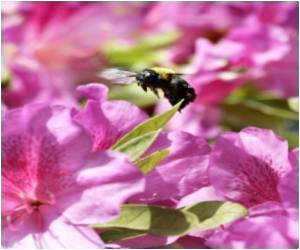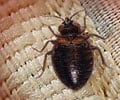Social species of wasps are far more disease-resistant their solitary counterparts, researchers with the Macquarie University say.

According to one of the lead researchers Mr Stephen Hoggard, “The result provides evidence for the origin of antimicrobial defenses in wasps and increases our understanding of trends in disease resistance strategies in all social insects”.
The findings suggest that wasps originally developed specialized antibiotic defenses to cope with living in the ground in solitary conditions but these then evolved and became much stronger to cope with disease risks associated with living in large groups.
These initial findings could have much further reaching applications. “Being able to understand what is driving the evolution of these antibiotic compounds may help scientists isolate naturally occurring antibiotics in the future and may eventually lead to the location of natural antibiotics for human use”, say Hoggard.
As populations grow and as disease causing micro-organisms continue to re-invented themselves and build a tolerance to existing antibiotics these findings will contribute to the search for new, natural ways to defend against illness.
In a related research, it has also been found that monogamy and close genetic relationship could be behind the co-operative social structure among insects such as bees, wasps and ants.
Advertisement
The paper that argues monogamy and haplodiploidy act in synergy has been published in Nature Communications online journal.
Advertisement
“It is well known that ants, bees and wasps all form colonies where individuals help each other and form a collective,” she said.
“This paper is about a really old social evolution idea that has experienced a bit of a rollercoaster ride in popularity.
“In the 1970s, Bill Hamilton suggested that the weird genetics of haplodiploid insects could favour cooperation in such systems because sisters are much more closely related to each other than they are in other organisms.
“But this also means that they are less related to brothers so that would potentially make them less cooperative, and therefore people recently started to believe more in monogamy, where the queen mates only once, as a reason behind their social behaviour.
“We resurrected Hamilton’s old argument by showing that both monogamy and haplodiploidy favour cooperative tendencies, but not because of the original reason.
“Our research revealed that the two work together because the haplodiploid genetic system clumps cooperative genes together so that colonies benefit from having lots of like-minded individuals working together to achieve a common goal.”
Source-Medindia







